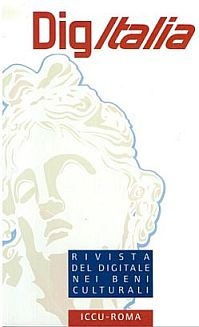Europeana Education: risorse culturali digitali per l’istruzione e la formazione
DOI:
https://doi.org/10.36181/digitalia-00008Keywords:
Europeana EducationAbstract
Education has been one of the first fields in which Europeana experimented the reuse of its contents, starting a longstanding collaboration with ministries of education, professional associations and networks, and teachers. In February 2020 Europeana launched Europeana Education, an informal group of professionals and experts, both from the cultural heritage and the education sectors, whose main activity is to exchange experiences and share ideas for an innovative reuse of the digital cultural resources of Europeana. In this article we present a review of tools made available by Europeana to teachers and educators.Downloads
Download data is not yet available.
Downloads
Published
2020-06-24
How to Cite
Natale, M. T., & Piccininno, M. (2020). Europeana Education: risorse culturali digitali per l’istruzione e la formazione. DigItalia, 15(1), 108–113. https://doi.org/10.36181/digitalia-00008
Issue
Section
Projects
License
Copyright (c) 2020 DigItalia

This work is licensed under a Creative Commons Attribution-ShareAlike 3.0 Unported License.
The Authors publishing their contributions on this journal agree to the following conditions:
- The Authors detain intellectual property rights of their work and transfer the right of first publication of the work to the journal, under the following Licence: Attribution-ShareAlike 3.0 Italy (CC BY-SA 3.0 IT). This Licence allows third parties to share the work by attributing it to the Authors and clarifying that the work has been first published on this journal.
- Authors can sign other, non-exclusive licence agreements for the dissemination of the published word (e.g. to deposit it in an institutional archive or publish it in a monography), provided that they state that the work has been first published on this journal.
- Authors can disseminate their work online (e.g. in institutional repositories or on their personal websites) after its publication, to potentially enhance knowledge sharing, foster productive intellectual exchange and increase citations (see The Effect of Open Access).






